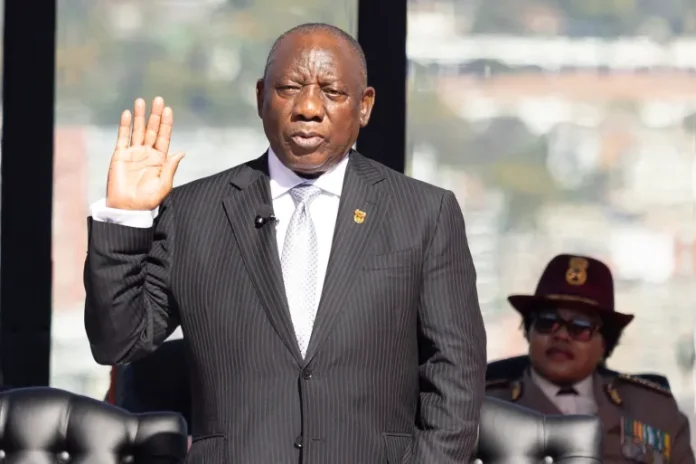President Cyril Ramaphosa took a conciliatory tone in his inaugural speech yesterday while at the same time lashing out at those he says are seeking to divide the nation, South African media reported.
Ramaphosa set the tone for his new administration at the start of his second presidential term, which came thanks to a multi-party pact to form a government after elections failed to produce an outright winner. He now heads an administration made up of various political parties, including the DA, IFP, PA and the Good Party, which formed the Government of National Unity (GNU).
Ramaphosa described the creation of the GNU as a moment of profound importance and the beginning of a new era.
However, the creation of the GNU was divisive in some quarters, with some political parties rejecting it and labelling it a coalition of the select few. The uMkhonto we Sizwe Party (MKP) contested the election results, leading to a boycott of the first sitting of parliament last week.
Ramaphosa called for unity, insisting that neither strife nor dissent would cause the country to set back building a united, just, equitable and prosperous nation. He said:
We must reject every attempt to divide or distract us, to sow doubt or cynicism, or to turn us against one another. Those who seek to stand in our way, those who seek to inflame tensions, will not succeed because South Africans are resolute. And so, as we enter another era in the life of our nation, the resilience of our democracy has once more been tested and the people have spoken loudly that they choose peace and democracy over violent, undemocratic and unconstitutional methods.
The President said South Africans had voted and voiced their wishes, concerns and expectations, which he said had been heard. He also added:
As the president of the Republic, I will work with everyone to reach out and work with every political party and sector that is willing to contribute to finding solutions to the challenges our country faces as we transition to a new decade of freedom.
Inauguration ceremony
The guests from South Africa and other countries, members of parliament, representatives of political parties, trade union, business and civic leaders, and many others attended the ceremony.
At least 18 Heads of State and Government, three former Heads of State and Government and nine heads of delegation came to Ramaphosa’s inauguration.
The ceremony was accompanied by performances, a 21-gun salute and an aerial flyover.
Earlier, members of South Africa’s lower house of parliament (the National Assembly of the Republic of South Africa) re-elected Ramaphosa as the country’s president. 283 deputies out of 339 participating in the voting voted in his favour.
On May 29, parliamentary elections were held in the country. South Africa’s constitution mandates that within two weeks of them, the National Assembly must meet to elect a president, speaker and deputy speaker.
The African National Congress (ANC), ruling since 1994, lost its majority for the first time but was able to form a coalition to create a government of national unity. Observers believed that Ramaphosa, South Africa’s incumbent president since 2018, would win re-election but would have to make concessions to other parties in doing so.
